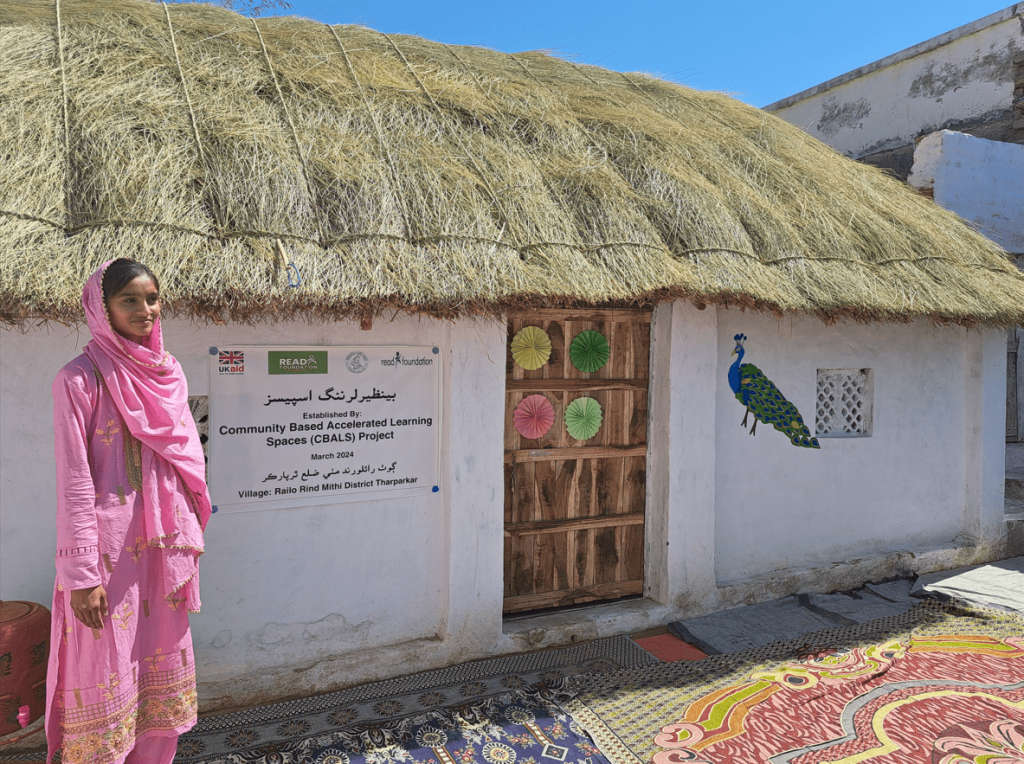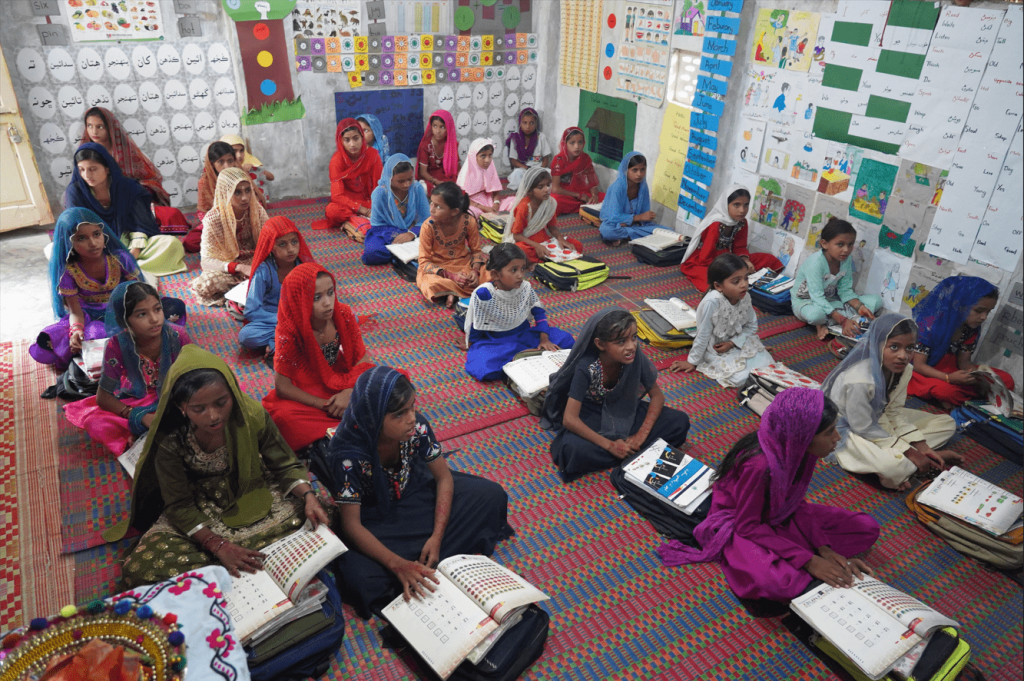Empower Her: How READ Foundation are supporting girls to access education in rural Pakistan
In Pakistan, girls face significant barriers to accessing school and gaining an education. These barriers include accessibility, where schools are often far from home and require long and dangerous journeys, and inadequate and basic school infrastructure and learning resources. In this context, alternative models like community learning centres offer accessible, safe spaces for girls to learn closer to home.
Through their three-year UK Aid Match project ‘Empower Her’, READ Foundation have set up 120 community-based accelerated learning spaces (CBALS) within communities in two rural areas of Pakistan, to help support 3,600 girls to receive the education they deserve.
The CBALS are located in easily accessible areas for girls, such as local churches and community centres. Each building is named after influential women, including local role models who advocate for women’s empowerment, fostering a sense of pride and connection amongst the students and wider community. The CBALS are well-equipped with teaching materials, comfortable furniture, boundary walls for added safety, and washroom facilities with access to safe drinking water, creating a secure and supportive learning environment.

Photograph: A student stood next to one of the CBALS
So far, 120 female teachers have been recruited to teach at the CBALS and have received training from education specialists. This training includes capacity building on how to implement activity-based learning methodologies and approaches for accelerated learning, assessment techniques and lesson planning. Teachers and staff have also received in-depth safeguarding training to equip them with enhanced protocols and standards for safeguarding.
“I never realised earlier that there are different teaching methodologies that can maintain children’s interest in studies. By learning and adopting activity-based learning, my interest in teaching students, including my own children, has increased.” – CBALS teacher
In addition to improving girls’ access to education, the project is assisting the girls with obtaining birth certificates by connecting them and their families with the relevant authorities. Currently, 90% of girls in the CBALS do not have their birth certificate, and securing this document will enable them to have access to essential government health, education and nutrition programmes.
Community engagement is essential to the project’s long-term success, especially in promoting the importance of girls’ education. Several committees have been established such as a Village Education Committee, where male and female community members, government officials and project staff come together to raise awareness of the project. Community outreach initiatives, campaigns and workshops are also being conducted to challenge social perceptions and attitudes around girls’ education and to emphasise everyone’s role in empowering girls and strengthening their future.

Photograph: Girls learning in one of the CBALS
Looking forward, the project’s next steps include opening 14 schools, so that girls from the CBALS can transition to formal education with confidence.
For more about the project, take a look at READ Foundation’s project report.